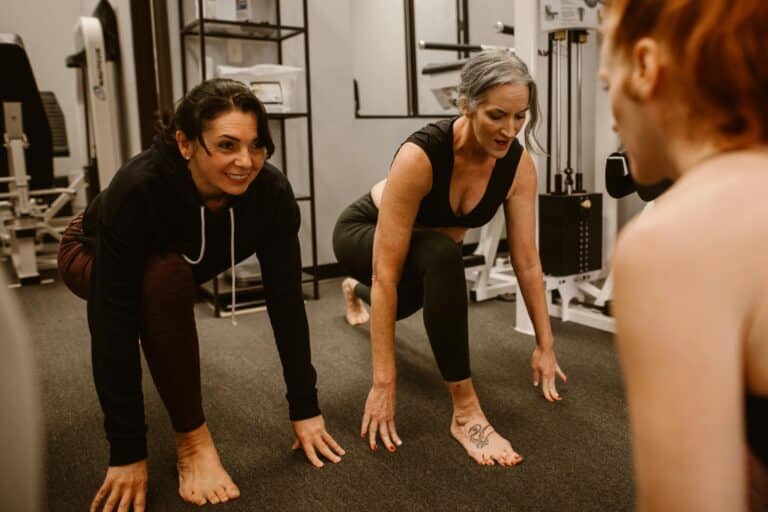Coach and author Sharkie Zartman remembers coaching at a youth volleyball tournament and observing a match between two very good teams of 10-year-olds when the parents started behaving badly.
“It was just a battle, going back and forth,” she says. “After it was over, the parents were still yelling at the coaches, officials and other parents. Meanwhile, the kids from both teams went outside to play some kind of circle game, and they were all laughing and having fun. I was thinking, ‘Oh, my gosh, who are the grownups, and who are the kids?’”
As numerous memes on social media suggest, badly behaving sports parents are not uncommon. In an effort to foster healthier sports parenting, Zartman teamed up with Robert Weil, DPM, a sports podiatrist based in Aurora, to write #HeySportsParents: An Essential Guide for any Parent with a Child in Sports.
It’s important for parents to stay calm and be supportive while helping their kids navigate the perks and pitfalls of youth sports, the authors say.
Zartman says many parents look at sports with a competitive mindset, while their kids just want to enjoy themselves. “Kids play sports because they’re fun, and they want to be with their friends,” she says. “But what do most parents focus on? Winning, getting the trophies or dreaming of scholarships.”
Competitive focus
Some parents try to live through their children, says Jenny Conviser, PsyD, founder and CEO of the outpatient behavioral health practice Ascend Consultation in Health Care and assistant professor of psychiatry and behavioral sciences at Northwestern University’s Feinberg School of Medicine.
“Some parents rely on their children’s experiences and successes to feel more successful themselves,” Conviser says. “If you just prioritize your kid’s success as an athlete, you may overlook other important things like sleep, family or friend time and — this is a big one — the related financial stress [of sports] on the family.”
Many parents live vicariously through their kids, says therapist Andrew Joy, LCPC, founder of The Mental Difference, a sports psychology practice in the Chicago area. He describes a common scenario: “Dad didn’t make it out of high school sports, and now he pushes and pushes his kid until the kid doesn’t want to play anymore. [But] you’ve got to let your kid do his or her thing.”
The pressure of living up to a parent’s expectation can mount, especially after a bad game. Parents might need to take a step back at such a moment, Joy says.
“A lot of times, the car ride home can be pretty stressful for kids,” Joy says. “They just had a bad game, and their parents are pushing them for information. The kid is already upset. Sometimes, it’s better for parents to be silent and be comfortable with the silence.”
Parents who bribe their kids with money or gifts if they score well can set their children up for disappointment. “A child who is just regarded well for scores or accomplishments may not feel positively about the rest of themselves and may wake up and feel that they are only as good as their next scores,” Conviser says.
It’s not just sports psychologists and therapists who see the effects of competitive behavior in parents. Marc Breslow, MD, an orthopedic surgeon who specializes in sports medicine at Illinois Bone & Joint Institute, sees children who sustain injuries from the intense competition.
The sports environment has changed, with an emphasis on year-round training on a single sport. “Kids are now doing sports year-round,” Breslow says. “Because of this, kids are exposed to overuse injuries and burnout.”
In fact, a study published in 2018 in Pediatrics found that children with a high specialization in a sport were 81% more likely to experience an overuse injury than athletes who played a wide variety of sports.
Watch out for abusive signs
Parents who are so focused on their child’s success may miss the signs of an abusive coach. Spotting — and stopping — abuse is especially important in the wake of sexual abuse of athletes within USA Gymnastics and allegations within USA Swimming.
Zartman mentions a friend whose daughter played water polo at one of the top clubs in the area, with a verbally abusive coach who called the girl names and put her down. Zartman says she asked her friend, “‘Why do you want your daughter to think that men should treat her this way?’”
The mother had kept her daughter at the club because he was a top coach at an elite program. Eventually, though, the girl switched to a different club, where she excelled. “She felt good about herself and was enjoying the sport again,” Zartman says.
Parents and their children should not tolerate an abusive or unhealthy training environment simply because the team is good. “No potential success should take priority over your child’s health and happiness,” says Conviser, who was a Division 1 college gymnastics coach before she became a sports psychologist.
“That kind of environment has a long-lasting impact on kids,” Conviser adds. “A kid who is mistreated is broken down, not built up.”
Tips for sports parents
Follow these tips for a healthier approach to sports for parents and their children.
- Check safe sport guidelines. Guidelines should be available through the individual sport’s governing body or through the U.S. Center for SafeSport. Parents can also look to uscenterforsafesport.org to report concerns and to find more information.
- Avoid overuse injuries. Too much pressure from year-round training can lead to physical harm, such as overuse injuries. Plus, sports carry the risk of concussions. Practice safely.
- Keep an eye out for burnout. Many kids drop out of sports by age 13, Conviser says. “They leave if there’s injury or too much stress and strain on their bodies, their families, their well-being or finances. The more hours per week a sport requires usually means that there’s a greater likelihood of early burnout.”
- Watch for signs of disordered eating. Some sports, especially gymnastics and wrestling, put children at risk for eating disorders. “Parents need to be aware of the pressures facing their kids, whether it’s peer pressure or pressure from their coaches,” Breslow says.
- If injured, see a doctor. If the injury doesn’t respond to rest, ice and over-the-counter medicine, it should be checked out, especially if there is continued pain, excessive swelling or other persistent symptoms, Breslow says. “If you miss an injury early on, sometimes a simple situation becomes very complex,” he warns.
- Consider going to an orthopedic clinic. If parents suspect that their child has an orthopedic injury to the bones or joints, Breslow recommends taking them to a walk-in orthopedic clinic, where they can be immediately evaluated by a specialist and get the right type of imaging, bracing or other therapy.
- Be prepared. Parents should make sure their children wear the right footwear, get enough sleep and consume a balanced diet.
- Stay hydrated. “A lot of times, kids aren’t drinking enough, especially in [cool] weather, because they don’t know they’re sweating as much,” Breslow says.
- Learn to stretch well. Many athletes emphasize strength instead of flexibility, Breslow says. But stretching warm-ups are important. “A significant number of injuries occur because of a lack of flexibility,” he says.

Jeanette Hurt is an award-winning writer and author of over 10 books.










